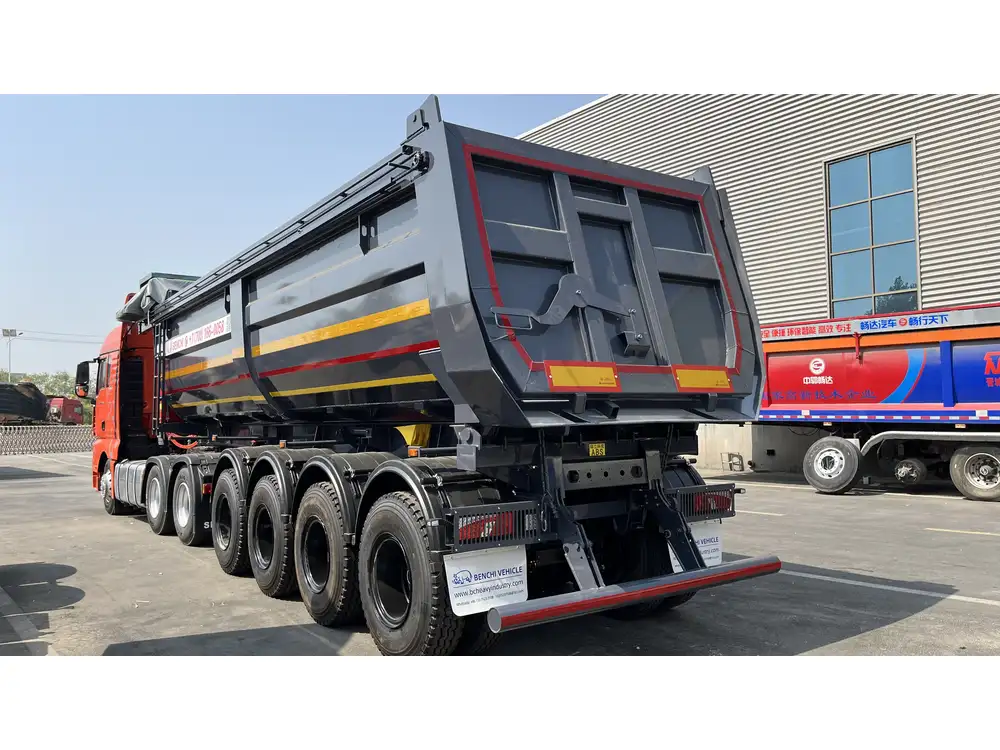Agriculture has witnessed significant technological advancements over the years, with machinery playing a pivotal role in boosting productivity and efficiency. Among these innovations, Anti-lock Braking Systems (ABS) in tractors have emerged as a critical feature enhancing both safety and operational performance. In this comprehensive guide, we delve deep into the concept of Tractor ABS, exploring its functionalities, benefits, and its pivotal role in modern farming practices.
What is Tractor ABS?
Tractor ABS, or Anti-lock Braking System, is an advanced braking technology integrated into modern tractors to prevent wheel lock-up during braking. This system ensures that the tractor maintains optimal traction with the ground, allowing for more controlled and efficient stopping, especially under demanding agricultural conditions.
Key Components of Tractor ABS
| Component | Description |
|---|---|
| Wheel Speed Sensors | Monitor the rotation speed of each wheel to detect potential lock-up scenarios. |
| Electronic Control Unit (ECU) | Processes data from sensors to modulate brake pressure accordingly. |
| Brake Actuators | Mechanically adjust brake pressure based on signals from the ECU. |
| Hydraulic System | Delivers brake fluid to the actuators, facilitating precise braking control. |

How Does Tractor ABS Work?
The operational mechanics of Tractor ABS involve a seamless interplay between its core components to ensure efficient braking without wheel lock-up.
Detection Phase: Wheel speed sensors continuously monitor the rotational speed of each wheel. If a sudden deceleration is detected, signaling a potential wheel lock-up, the sensor relays this information to the ECU.
Processing Phase: The ECU analyzes the sensor data in real-time. Upon identifying a lock-up condition, it triggers the brake actuators to adjust the brake pressure.
Modulation Phase: The brake actuators modulate the hydraulic pressure applied to the brakes, preventing the wheels from locking while still allowing for effective deceleration.
Repetition Cycle: This process operates cyclically, ensuring continuous monitoring and adjustment during braking, thereby maintaining traction and control.
Benefits of Tractor ABS
Integrating ABS into tractors offers a myriad of benefits that transcend basic braking functionality, significantly impacting overall agricultural operations.
Enhanced Safety
Safety is paramount in any operational machinery. Tractor ABS substantially reduces the risk of accidents caused by wheel lock-up, especially on slippery or uneven terrains common in agricultural settings. By maintaining wheel traction, ABS ensures that operators retain steering control during braking, minimizing the likelihood of rollovers or collisions.

Improved Efficiency
ABS facilitates more efficient braking, allowing tractors to stop shorter distances compared to traditional braking systems. This efficiency is crucial when navigating narrow fields or avoiding obstacles, enabling operators to execute maneuvers with greater precision.
Reduced Brake Wear
By preventing wheel lock-up, ABS diminishes the abrupt stress on brake components, leading to reduced wear and tear. This results in lower maintenance costs and extends the lifespan of braking systems, contributing to overall operational cost savings.
Optimal Performance in Diverse Conditions
Agricultural environments present varied and often challenging conditions. Tractor ABS adapts to different terrains, including muddy, wet, or uneven surfaces, ensuring consistent braking performance regardless of external factors.

Comparing ABS with Traditional Braking Systems
To fully appreciate the advancements brought by ABS, it is essential to compare it with traditional braking systems commonly used in tractors.
| Feature | Traditional Brakes | Tractor ABS |
|---|---|---|
| Wheel Lock-Up Prevention | Minimal | Advanced prevention through real-time adjustments |
| Control During Braking | Limited, especially on slippery surfaces | Enhanced, maintaining steering control |
| Brake Wear | Higher due to frequent lock-ups | Lower, as lock-ups are minimized |
| Stopping Distance | Longer and less predictable | Shorter and more consistent |
| Adaptability | Poor adaptability to varying terrains | High adaptability, ensuring performance across conditions |
Implementation of ABS in CarMax Vehicle Tractors
At CarMax Vehicle, we prioritize integrating cutting-edge technologies to deliver superior agricultural machinery. Our tractors equipped with ABS exemplify our commitment to enhancing safety and performance for our clients.
Advanced Sensor Technology
Our tractors utilize state-of-the-art wheel speed sensors that offer precise and rapid detection of wheel behavior, ensuring timely interventions during braking.

Intelligent ECU Programming
The Electronic Control Unit in CarMax tractors is meticulously programmed to interpret sensor data accurately, enabling swift and effective modulation of brake pressure tailored to specific operating conditions.
Durable Brake Components
We employ high-quality brake actuators and hydraulic systems designed to withstand the rigorous demands of agricultural tasks, ensuring longevity and consistent performance.
Maintenance and Care of Tractor ABS
Proper maintenance is crucial to ensure the longevity and optimal functionality of ABS in tractors. Here are essential maintenance practices recommended by CarMax Vehicle:

Regular Inspections
Conduct routine checks of wheel speed sensors, brake actuators, and hydraulic components to identify and address potential issues proactively.
Brake Fluid Management
Maintain appropriate brake fluid levels and replace the brake fluid as per the manufacturer’s guidelines to preserve the responsiveness and efficiency of the braking system.
Software Updates
Ensure that the ECU software is up-to-date to incorporate the latest improvements and calibrations, enhancing the overall performance of the ABS.

Professional Servicing
Engage certified technicians for periodic servicing to perform comprehensive diagnostics and maintenance, ensuring that all ABS components function seamlessly.
The Future of Tractor ABS in Agriculture
As agricultural practices continue to evolve, so does the technology that supports them. The future of Tractor ABS holds promising advancements aimed at further enhancing safety, efficiency, and adaptability.
Integration with Autonomous Systems
With the rise of autonomous farming equipment, Tractor ABS will play a crucial role in ensuring the safe and precise operation of self-driving tractors, contributing to the overall reliability of automated agricultural processes.

Enhanced Data Analytics
Future ABS systems will likely incorporate advanced data analytics, providing operators with insights into braking performance and suggesting optimizations for improved safety and efficiency.
Sustainable Technologies
There is an ongoing push towards integrating more sustainable technologies within ABS, such as energy-efficient components and eco-friendly materials, aligning with the broader goals of sustainable agriculture.
Why Choose CarMax Vehicle for Your Tractor Needs
At CarMax Vehicle, we are dedicated to delivering high-quality agricultural machinery designed to meet the diverse needs of modern farmers. Our tractors, equipped with advanced ABS, offer unparalleled safety, performance, and reliability, empowering you to achieve excellence in your agricultural endeavors.

Comprehensive Support and Service
We provide extensive support and servicing options, ensuring that your machinery remains in optimal condition year-round. Our team of experts is always ready to assist with maintenance, repairs, and upgrades.
Customizable Solutions
Understanding that every farm is unique, we offer customizable tractor configurations to suit your specific operational requirements, including tailored ABS settings for various farming conditions.
Commitment to Innovation
Our relentless pursuit of innovation drives us to continuously enhance our products, incorporating the latest technological advancements to deliver superior performance and efficiency.

Conclusion
Tractor ABS represents a significant leap forward in agricultural machinery, combining safety, efficiency, and reliability to support the dynamic demands of modern farming. At CarMax Vehicle, we are proud to integrate this advanced technology into our tractors, providing our clients with the tools they need to excel in their agricultural pursuits. Embracing Tractor ABS not only enhances operational performance but also ensures the safety and longevity of your farming equipment, making it an invaluable investment for any serious farmer.
Frequently Asked Questions
1. How does ABS improve tractor maneuverability?
ABS prevents wheel lock-up during braking, maintaining traction and allowing operators to steer the tractor effectively even while decelerating. This enhanced control reduces the risk of skidding and improves overall maneuverability, especially on slippery or uneven terrains.

2. Is Tractor ABS compatible with all types of tractors?
Most modern tractors can be equipped with ABS, but compatibility depends on the specific tractor model and its existing braking system. It’s essential to consult with CarMax Vehicle to ensure proper integration and functionality of ABS with your tractor.
3. What maintenance steps are essential for Tractor ABS?
Key maintenance steps include regular inspections of wheel speed sensors and brake components, maintaining brake fluid levels, updating ECU software, and scheduling professional servicing. These practices ensure the ABS operates efficiently and prolongs the system’s lifespan.
4. Can Tractor ABS reduce fuel consumption?
While ABS primarily focuses on braking efficiency and safety, it can indirectly contribute to fuel savings by promoting smoother deceleration and reducing unnecessary brake wear. Efficient braking helps maintain optimal tractor performance, potentially leading to better fuel economy.

5. What are the indicators of a malfunctioning Tractor ABS?
Common signs of ABS malfunction include warning lights on the dashboard, unusual braking behavior such as pulsation or noise, reduced braking efficiency, and loss of traction during braking. If any of these symptoms are observed, it’s crucial to have the ABS system inspected by a professional.



